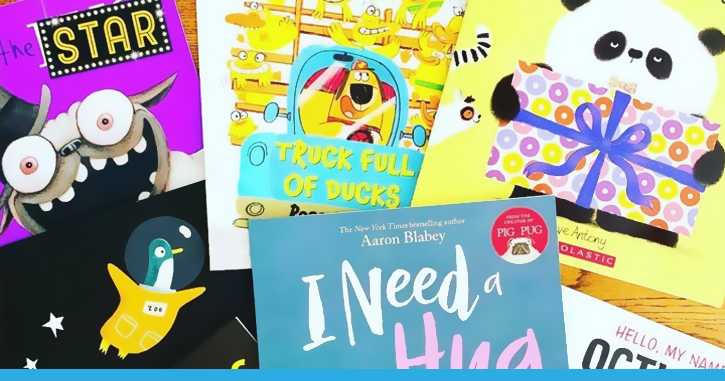Teachers Share Fun Ways to Encourage Reading

In honor of Celebrate Literacy Week, we’re sharing tips for parents to encourage students’ love of reading. The importance of reading or being read to cannot be overstated, with an impact that extends beyond just hearing stories.
Young children who are exposed to early language and literacy experiences prove to be good readers later on in life. The Department of Education found that the more students read (or are read to) for fun at home and on their own time, the higher their reading scores.
According to the National Center for Education Statistics (NCES), young children who are read to frequently are also more likely to: count to 20 or higher than those who were not (60% vs. 44%), write their own names (54% vs. 40%) and read or pretend to read (77% vs. 57%). NCES also found that children who are read to at least three times a week by a family member are almost twice as likely to score in the top 25% in reading compared to children who are read to less than three times a week.
Just as parents teach their children healthy habits like brushing their teeth or washing their hands, good reading habits must be taught. One of the best ways to foster such habits is for the adults in a child’s life to model a love of reading. Reading books is always helpful but parents can show children that reading can be done anywhere! Find the joy in reading everything from novels to cereal boxes or playing word games in the car.
FLVS teachers shared some of their favorite reading ideas, and some are unexpected.
Lead by Example
- Model good reading habits by reading to or alongside children.
- Read the description on a movie before starting it – get a sneak peek into the storyline, make predictions, and ask questions.
- Encourage reading, writing and discussions among family members.
- Encourage children to read new and challenging books, articles, and magazines.
- Be positive when talking about children’s reading ability and skills.
- Expose children to different kinds of books such as novels, biographies, and informational content.
- Create a “home library” for your family to access.
- Create a “reading nook” at home where children can read.
- Encourage children to write books about their day.
- Limit TV viewing by controlling the amount of time spent watching television.
- Visit the local public library and help children get library cards of their own.
Add Reading to Your Daily Routine
- Read the back of the cereal box at breakfast.
- Select a “word of the day” to add to children’s growing vocabulary.
- Before a family dinner, create place settings with first and last names.
- Make dessert time reading time. Read to your children while they enjoy their evening snack.
- Set aside additional reading time or add extra bedtime story time as a reward for good behavior.
Play Unexpected Games
- Play word or rhyming games during a car trip or at home.
- Play a find-the-street-sign game in the car and find words that start with various letters of the alphabet.
- Write out words with opposite meanings on separate pieces of paper and match pairs together.
- Play the “I Spy” game, looking for uppercase and lowercase letters.
- Make up a story by having each family member add a sentence to a story starter; expand on the individual character traits, the setting of the story and exciting events and adventures.
Find Reading Opportunities Everywhere!
- Take books in the car to read, rather than watching a DVD.
- Comment on new words on the radio or TV.
- Bake something. When following a recipe, children are not only practicing their reading skills, they are learning how to follow directions and work toward a goal.
- Turn on subtitles when watching a movie. Even before reading age, children will learn that what the characters are saying is associated with text. As they get older, they will be able to match words with text.
- Help label artwork with children’s names and ages.
- While playing outside, encourage children to create their names out of sticks, stones, and other materials.
- Help children read the labels on different bottles and containers, like shampoo bottles at bath time.
